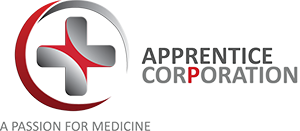Although some people only discover their passion for medicine a bit later on in life, some of us know that we want to devote our lives to medicine from a very young age. If you already know that you want to become a doctor during your high school years, you may be wondering whether it’s possible to go straight from high school and into medical school.
Is it possible to go directly from high school to medical school?
Technically, no. In the United States, you must finish a Bachelor’s degree before you can start medical school. Typically, medical school aspirants need to apply to medical school once they complete certain requirements, such as obtaining their Bachelor’s degree, passing certain pre-requisite classes, and taking the MCAT.
But there is another path to medical school available for high school graduates who have already decided that they want to pursue a career in medicine. A BS/MD program allows high school seniors to accelerate their admission into medical school, but this doesn’t mean that they won’t need to get a Bachelor’s degree first.. Read on to learn more about these programs and how to get admitted into one of them.
What is a BS/MD program?
A BS/MD program, or direct medical program, is a program that combines admissions to a Bachelor’s degree and medical school into one. There are also some BA/MD programs available.
Despite the fact that they ultimately offer the same goal — a medical degree —, these programs can be very different from each other. Some give students more freedom regarding the majors and classes they can choose, whereas other programs offer only certain majors and classes.
BS-BA/MD programs may do away with the need to apply for medical school after completing your Bachelor’s degree, but you will still need to get good grades during your pre-medical years in these programs.
Direct medical programs require that students complete certain pre-requisite classes, just like any other pre-medical student. The programs also have GPA requirements that students need to maintain throughout their Bachelor’s degree in order to be eligible for a spot in their medical school program. Some programs waive the MCAT entirely, but others require that students get a minimum grade in the MCAT to continue on to medical school.
Most BS/MD programs take 8 years, which is the same amount of time that it would normally take you to complete a regular Bachelor’s degree followed by medical school; however, some BS/MD can be completed in 6 or 7 years. 6 year direct medical programs are becoming rare, though, since they require students to complete requirements at a very fast pace.
How difficult is it to get into a BS/MD program?
The admissions process for BS/MD and BA/MD programs is very different from regular medical school admissions. Acceptance into these programs is highly competitive, since there aren’t many spots available each year.
Of course, BS/MD programs won’t be looking for stats such as MCAT scores, since you can’t take this exam right out of high school. Instead, direct medical programs will consider other factors, such as a student’s:
- Class rank
- SAT score
- Extracurriculars
- Personal statement
In order to be a competitive applicant for a BS-BA/MD program, you’ll need to achieve a SAT score that’s on the 95th percentile or higher. Some programs have specific SAT or SAT Subject Tests score requirements and cutoffs. You’ll also need to graduate near the top of your class and maintain a high GPA during high school.
Extracurricular activities are also important. As a high school student, you may be limited in the type of clinical volunteering activities that you can perform, but you can still seek out different options. Anything from volunteering at a hospice to shadowing a local physician can work, as long as you engage in activities that demonstrate your interest in healthcare.
Letters of recommendation (LOR) also play a role in the application process. As a high school student, you can get LORs from your teachers or from members of the organizations where you have volunteered for your extracurricular activities.
Many BS/MD programs will also require supplemental essays, which will give you the opportunity to explain the reasons behind your love of medicine and why you would be an ideal candidate. Make sure your personal statement and essays are strong and compelling by having a skilled writer review them and provide feedback and edits.
How can I start preparing for medical school if I don’t get accepted into a BS/MD program?
Most medical students go through the regular process of getting a Bachelor’s degree before applying to medical school. Some students even get additional degrees before applying to medical school!
Once you begin your pre-medical years, it’s very important to maintain the highest possible GPA. Your GPA will be one of the main factors that admissions committees will consider when reviewing your application, and a high GPA will indicate a strong academic performance. Pursue a major in a field that you are interested in to make it easier to stay motivated, and make sure you take all your pre-requisites before you finish your degree.
Additionally, you can also start working on your extracurricular activities long before you apply to medical school. A successful medical school application will usually contain different extracurricular activities, such as volunteering or research experience.
Getting an early start will allow you to accumulate plenty of hours working on your extracurriculars, which can be a great advantage once you apply. Devoting a significant amount of hours to volunteering or clinical/research experiences will also tell admission committees that you are consistent and willing to work hard to achieve your goals.
It may be a good idea to leave preparing for the MCAT and writing your personal statement for your final years of undergraduate education, since focusing on too many things at once could negatively impact your academic performance and GPA. Instead, focus on your classes and extracurriculars at first. You can even branch out into activities that aren’t related to medicine — this will give you a more diverse profile that could be more attractive to medical schools.
At Medlearnity, we offer consulting services for your medical school application. Our team can help you craft a compelling personal statement, guide you while you prepare your application, and perform mock interviews, among other services that will give you the best possible chance of getting into your dream program.
Educators at Medlearnity are committed to working with medical students and physician trainees at all levels to excel on their MCAT, USMLE, COMLEX, Shelf/NBME, and Residency Board Exams. We have guided several doctors into successful careers over the past nine years.

